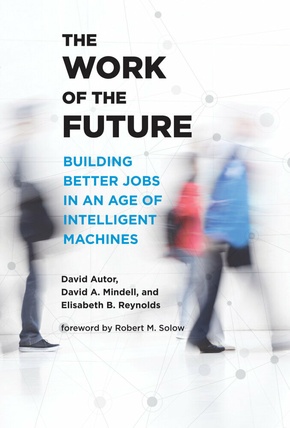The Work of the Future - Building Better Jobs in an Age of Intelligent Machines
| Verlag | MIT Press |
| Auflage | 2022 |
| Seiten | 192 |
| Format | 15,8 x 23,6 x 1,9 cm |
| Gewicht | 371 g |
| Artikeltyp | Englisches Buch |
| EAN | 9780262046367 |
| Bestell-Nr | 26204636EA |
Why the United States lags behind other industrialized countries in sharing the benefits of innovation with workers and how we can remedy the problem.
The United States has too many low-quality, low-wage jobs. Every country has its share, but those in the United States are especially poorly paid and often without benefits. Meanwhile, overall productivity increases steadily and new technology has transformed large parts of the economy, enhancing the skills and paychecks of higher paid knowledge workers. What s wrong with this picture? Why have so many workers benefited so little from decades of growth? The Work of the Future shows that technology is neither the problem nor the solution. We can build better jobs if we create institutions that leverage technological innovation and also support workers though long cycles of technological transformation.
Building on findings from the multiyear MIT Task Force on the Work of the Future, the book argues that we must foster institutional innovations that complement technological change. Skills programs that emphasize work-based and hybrid learning (in person and online), for example, empower workers to become and remain productive in a continuously evolving workplace. Industries fueled by new technology that augments workers can supply good jobs, and federal investment in R&D can help make these industries worker-friendly. We must act to ensure that the labor market of the future offers benefits, opportunity, and a measure of economic security to all.
Inhaltsverzeichnis:
Foreword by Robert M. Solow VII
Part I
1 Introduction 3
2 Labor Markets and Growth 11
3 Technologies and Innovation 39
Part II
4 Education and Training: Pathways to Better Jobs 79
5 Job Quality 101
6 Institutions for Innovation 121
7 Conclusions and Policy Directions 135
Acknowledgments 143
Notes 145
MIT Task Force on the Work of the Future
Research Briefs 163
MIT Task Force on the Work of the Future 165
Index 169

